The second and final day of College of Paramedics’ National Conference 2023 (ParaCon23) was as full, interesting and insightful as the first day.
The second day of ParaCon23 started out with the presentation of Sammer Tang, Specialist Registrar in Public Health, titled “The What, Why and How of health inequalities in paramedic practice?” in which Mr Tang explored unequal conditions which are systematic, avoidable and unfair differences between populations, within populations or across a socio-economic gradient.
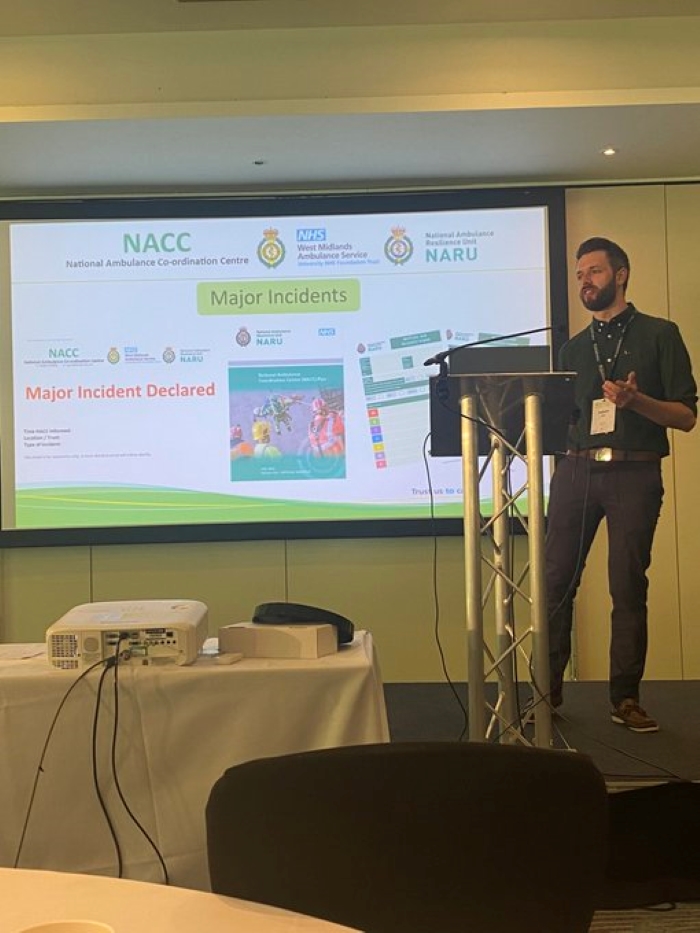
It was followed by Adam Black, Staff Officer, National Ambulance Co-ordination Centre (NACC), outlining the role of National Ambulance Co-ordination Centre, from co-ordinating the National response to Major incidents and mutual aid requests, to day-to-day National reporting, escalating system pressures and monitoring Trust performance.
David Rovardi, Medicines Specialist Advisor, College of Paramedics, walked conference attendees through some of the newest drugs now included in JRCALC and what that means for clinical practice.

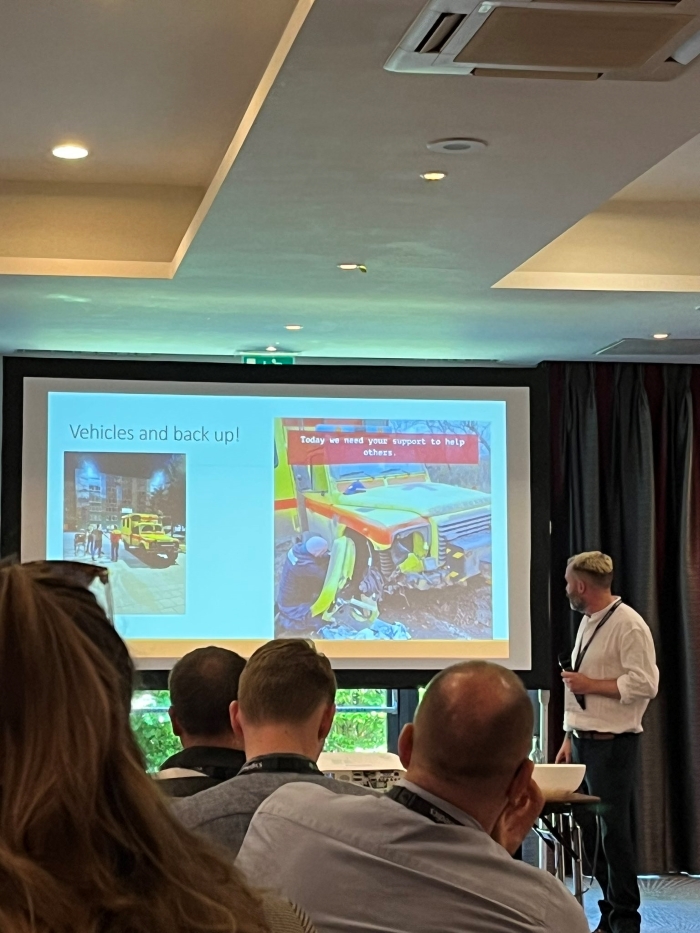
Simultaneously in the breakout room, Iain Campbell, Training Leader, Cadus gave a brief overview of the work Cadus, a German NGO and a part of the World Health Organisation’s (WHO) Emergency Medical Team (EMT) response model, are doing in Ukraine and gave a case study example of an ICU medical evacuation to demonstrate considerations made whilst organising critical care in resource limited environments.

John Martin, Chief Paramedic at London Ambulance Service made a presentation titled “The popularity of Paramedics”. The outgoing President of the College reflected on the profession’s growth over the last two decades, its interventions and impact on society as there are 246,000 searches a month on google for ‘paramedic’, and paramedics seem to have become the must have profession is numerous settings. And together with the attendees, he considered the question of “will we still be as popular in 2053?”
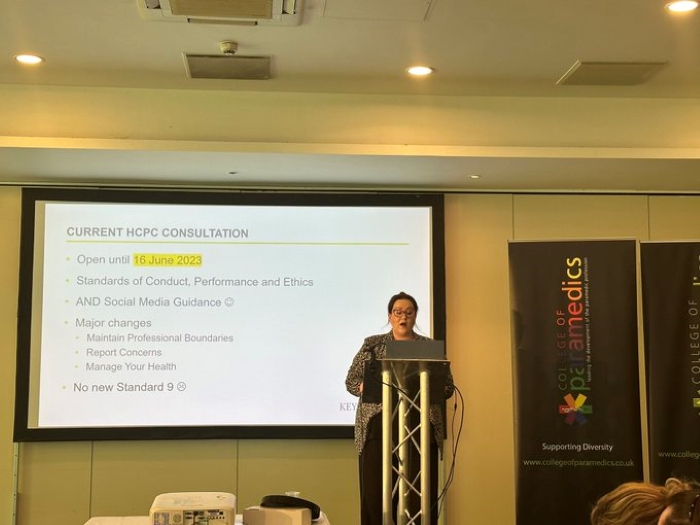
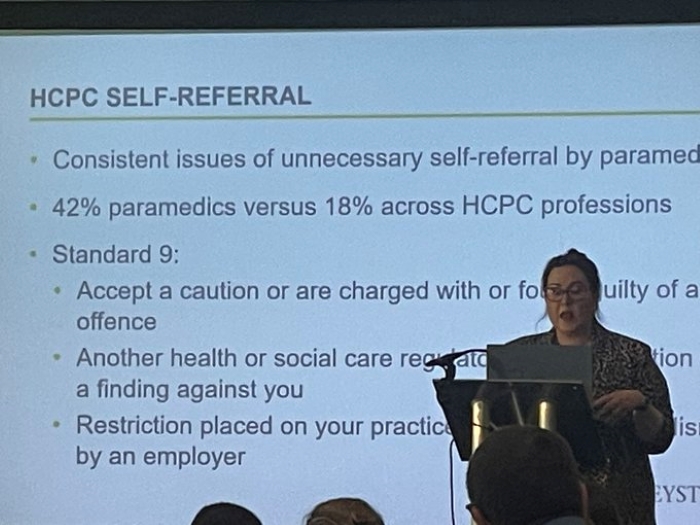
Andrea James, Regulatory Lawyer gave a speech on proposed changes to HCPC standards, highlighting how self-referral to the regulator is greater for paramedics than other professions.

Under the title “Current challenges in the ambulance service – a four nations perspective”, professionals from Scotland, Northern Ireland, Wales and England provided perspectives from four nations. Speakers included Dave Bywater, Lead Consultant Paramedic of Scotland, Rosie Byrne, Director of Operations of Northern Ireland Ambulance Service, Andy Swinburn, Director of Paramedicine of Wales, and John Martin, Chief Paramedic and Quality Officer / Deputy Chief Executive for the London Ambulance Service of England.
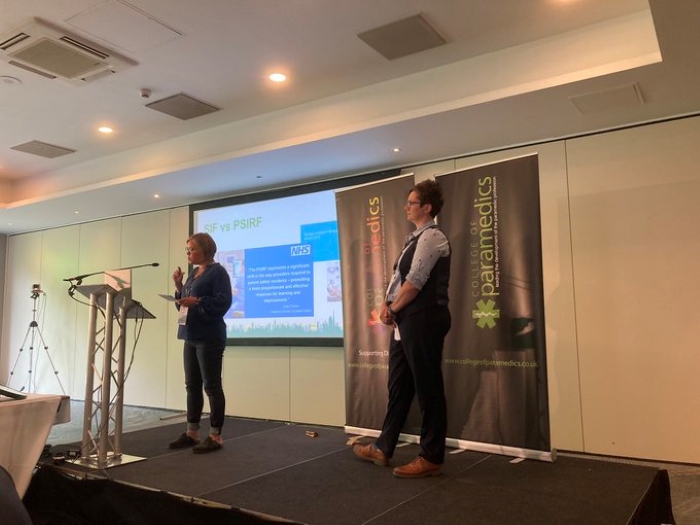
Jaqui Lindridge, Director of Quality, London Ambulance Service and April Wrangles, Head of Quality Improvement and Learning, London Ambulance Service presented “The future of patient safety investigation: Learning, improvement and culture”.
As early adopters of the patient safety incident response framework (PSIRF), Jaqui and April talked about the benefits of the new framework, their challenges, what they have learned and their hopes for the future.

Graham McClelland, Paramedic Research Fellow, North East Ambulance Service, talked about how important minutes are to a stroke patient’s life under the title of “Reducing ambulance on-scene times for suspected stroke through an evidence-based training package: an interim analysis” in the breakout room.
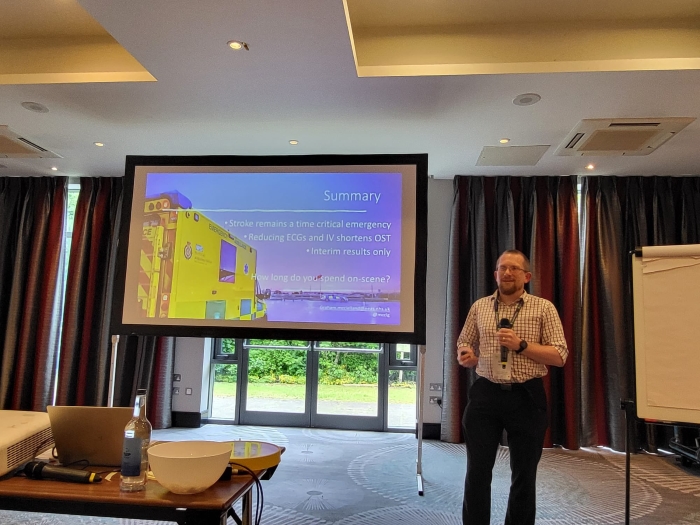
Mr McClelland said they developed a training package in collaboration with North East Ambulance Service. Interim analysis results were 6% drop in on-scene time (2 min), 12% drop in 12 lead ECGs – which represented really positive changes.
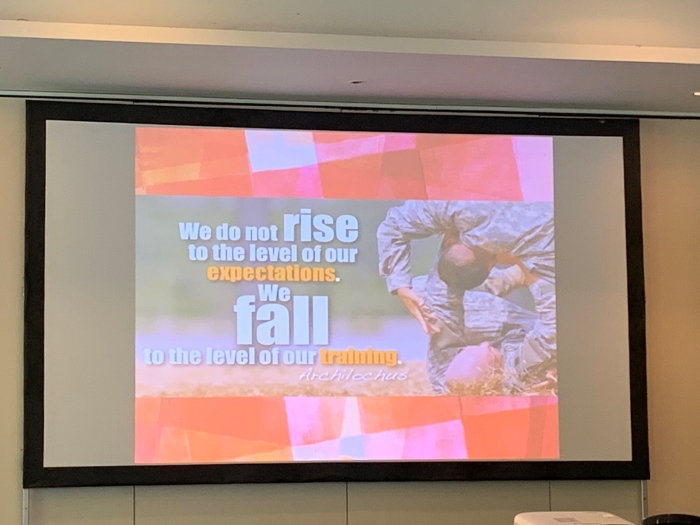
“We do not rise to the level of our expectations. We fall to the level of our training.”
The final message from ParaCon23 rounded off a powerful presentation on managing Acute Behavioural Disturbance (ABD) given by Richard McGirr, Advanced Clinical Practitioner (Critical Care), East of England Ambulance Service and Junaid Mughal, Advanced Paramedic Practitioner (Critical Care), London Ambulance Service, Founder and Chair of Bedfordshire and Hertfordshire Emergency Critical Care Scheme.
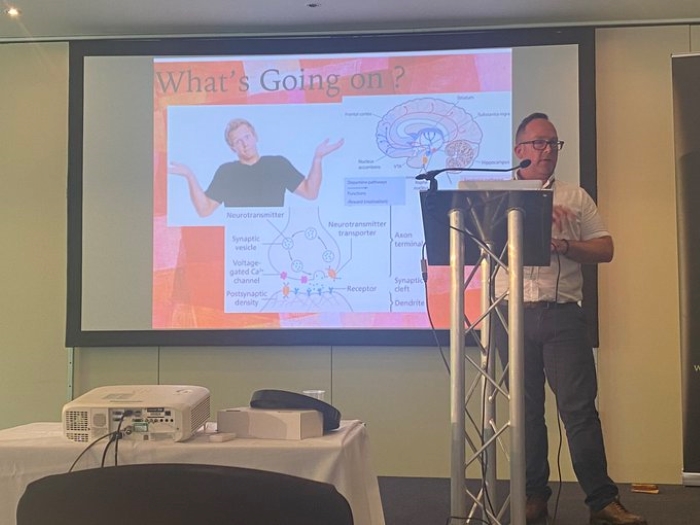
Mr McGirr provided some tips for safe restraint of ABD patients: “There is no safe physical restraint: calm the patient, consider chemical restraint (safer).”
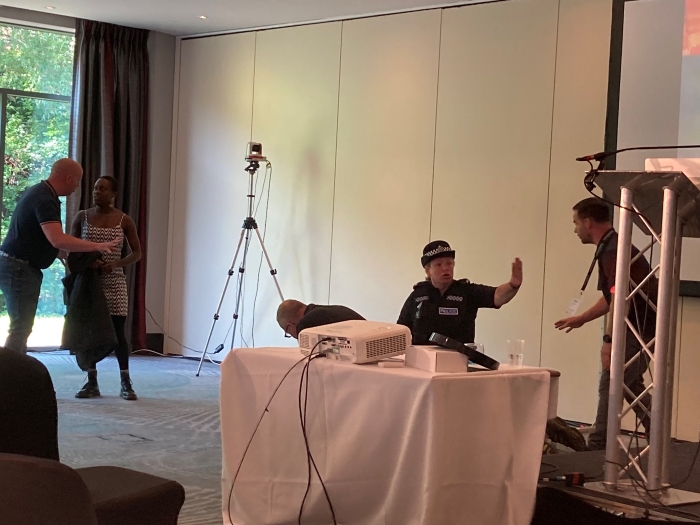
This session gave delegates the knowledge and skills to recognise and manage an ABD situation effectively. Using live actors to demonstrate the situations that paramedics find themselves in, attendees learned to recognise the signs and symptoms of ABD and saw safer restraint techniques used.










